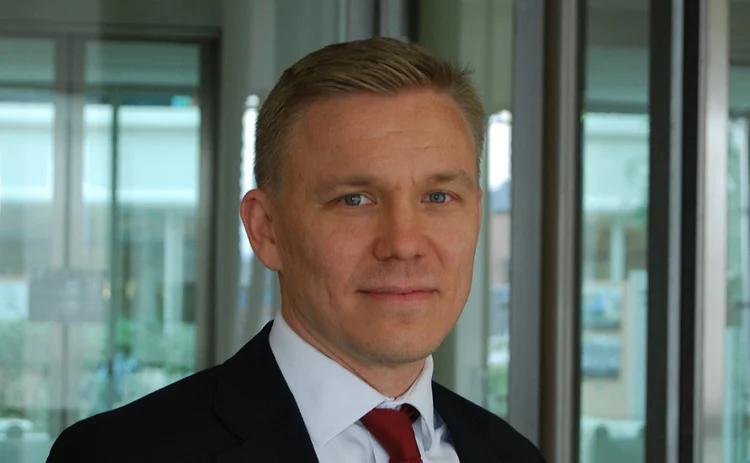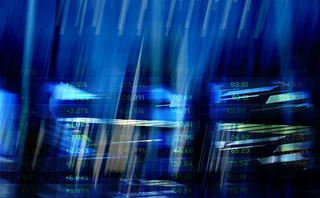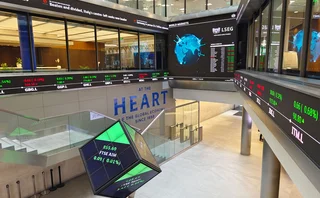
Base metals house of the year, Asia: BNP Paribas
Energy Risk Asia Awards 2017: Economic growth and bespoke product offerings drive bank’s metals business

Global economic growth, bullish Chinese macroeconomic policy and support for sustainable energies forced base metal prices into higher ranges in 2017. In Asia, BNP Paribas has been riding the crest of the wave.
“During this transition period we are going to see more investment into base metals linked to those trends, and this will be adding to the liquidity pool at the moment,” says Mikko Rusi, head of commodity derivatives Asia-Pacific, at BNP Paribas. “Having said that, we have had a more bearish base metals environment in the past few years and probably a lower supply growth as a result of that.”
The bank cites four factors as leading it to victory in the Energy Risk Asia Awards this year: global access to all major commodity markets; a commitment to clients; long-standing derivatives experience; and the delivery of strategic investment solutions via structured products, funds and indexes.
China is still the big story for base metals in the region and BNP Paribas’ wholly owned foreign invested entity allows it to work as a physical market-maker for onshore spot trading on both the Shanghai and Dalian exchanges.
“I believe it’s such a strategically important part of the metals market, being in many cases roughly 50% of the physical underlying consumption for some base metals,” Rusi says. “Challenges come from the fact that the activities of balancing China in some ways are restricted, like you cannot trade some onshore futures in commodities with the exception of precious metals and therefore you need to find the right parts of services that you can provide to clients that will be relevant to their ongoing financial needs.”
Despite those challenges, BNP Paribas says over the past year trading volume in onshore metals markets has increased tenfold. Adapting to local market requirements has been key to that, says Rusi.
“China has been a specific development area for us,” he says. “So we have expanded our offering and now offer hedging onshore to clients for various underlyings in base metal – and now also on precious metals. And we allow the clients to settle the transaction flow in renminbi.”
I would say that difficult market access is probably still the greatest issue in China, the biggest market
Mikko Rusi, BNP Paribas
The bank has gone beyond what might be considered normal levels of client engagement to ensure its reputation grows within China’s base metals markets. For example, an onshore Chinese smelter required financing to help fund copper concentrate imports. The bank arranged a pre-export finance facility with physical offtake, in which the bank was both the arranger of the club facility as well as the sole offtaker for the physical metal delivery. While a trading house would normally take the role of offtaker, arrangements were made for the borrower to deliver an agreed amount of copper to the bank and sales of that copper were used to pay down the loan.
This simple structure of this model supports a client’s funding needs and provides lenders with confidence. It also provides clients with access to the bank’s global network, which is a huge benefit for Asian players.
“When you look at the variety of other Asian jurisdictions, many of them have some specificities that we must continue to cope with and monitor,” says Rusi. “But at least we can offer customers hedging in the London Metal Exchange products and I would say that difficult market access is probably still the greatest issue in China, the biggest market.”
Bespoke products, the ability to offer a number of services and a determination to navigate difficult markets will continue to set the bank apart, say its clients.
“The core strength for us is combining a variety of services that the bank offers, such as lending and hedging, for example as one package,” says Rusi. “In terms of market development, I will say one part of the market that continues to grow rapidly has been more on the bulk side, and iron ore, coking coal for example. I have seen a lot of development in the last 12 to 24 months across all the geographies in Asia.”
Only users who have a paid subscription or are part of a corporate subscription are able to print or copy content.
To access these options, along with all other subscription benefits, please contact info@risk.net or view our subscription options here: http://subscriptions.risk.net/subscribe
You are currently unable to print this content. Please contact info@risk.net to find out more.
You are currently unable to copy this content. Please contact info@risk.net to find out more.
Copyright Infopro Digital Limited. All rights reserved.
As outlined in our terms and conditions, https://www.infopro-digital.com/terms-and-conditions/subscriptions/ (point 2.4), printing is limited to a single copy.
If you would like to purchase additional rights please email info@risk.net
Copyright Infopro Digital Limited. All rights reserved.
You may share this content using our article tools. As outlined in our terms and conditions, https://www.infopro-digital.com/terms-and-conditions/subscriptions/ (clause 2.4), an Authorised User may only make one copy of the materials for their own personal use. You must also comply with the restrictions in clause 2.5.
If you would like to purchase additional rights please email info@risk.net
More on Awards
Trading systems: structured products/cross-asset – Murex
Murex won the Trading systems: structured products/cross-asset award at the 2025 Risk Markets Technology Awards for its MX.3 platform, praised for its flexibility and advanced analytics
Best vendor for system support and implementation: Murex
Murex has won the Best vendor for system support and implementation at the Risk Markets Technology Awards, recognised for its innovative MX.3 platform, exceptional client support and seamless implementation services
FRTB-IMA product of the year: Murex
Murex wins FRTB-IMA product of the year for its advanced, scalable MX.3 platform enabling seamless regulatory compliance
Pricing and analytics: equities – Finastra
Finastra’s Sophis platform wins the Risk Markets Technology Award for Pricing and analytics in equities, recognised for its robust capabilities in equities and derivatives trading
Best execution product of the year: Tradefeedr
Tradefeedr won Best execution product of the year for its API platform, which standardises and streamlines FX trading data, enabling better performance analysis and collaboration across financial institutions
Collateral management and optimisation product of the year: LSEG Post Trade
LSEG Post Trade wins Collateral management and optimisation product of the year for interconnected services that help mitigate counterparty risk and optimise capital usage
Clearing house of the year: LCH
Risk Awards 2025: LCH outshines rivals in its commitment to innovation and co-operation with clearing members
Driving innovation in risk management and technology
ActiveViam secured three major wins at the Risk Markets Technology Awards 2025 through its commitment to innovation in risk management and technology







